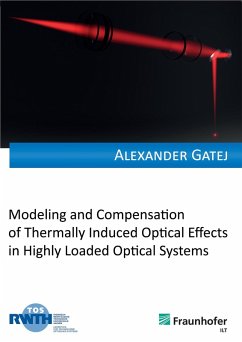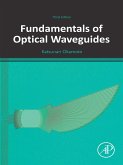For the first time, this dissertation enables a holistic modeling of thermal lensing due to arbitrary temperature profiles based on numerical methods for a mathematically and physically valid coupling of thermo-mechanical and optical simulation tools. Based on these developments, simulative and experimental analyses of thermal lensing are conducted and methodologies for the compensation of thermal lensing and the derivation of material data based on a sophisticated combination of measured and simulated values are derived.
Dieser Download kann aus rechtlichen Gründen nur mit Rechnungsadresse in A, B, CY, CZ, D, DK, EW, E, FIN, F, GR, H, IRL, I, LT, L, LR, M, NL, PL, P, R, S, SLO, SK ausgeliefert werden.









